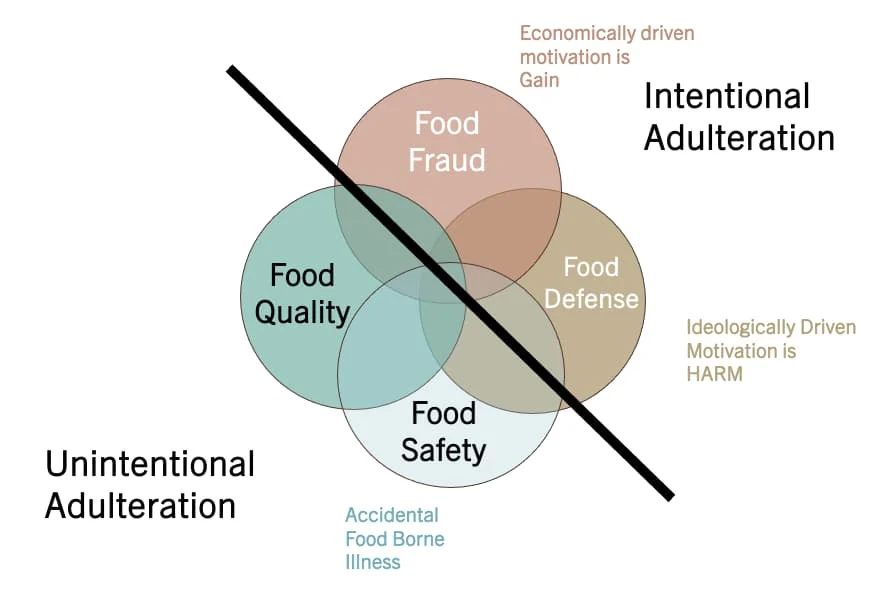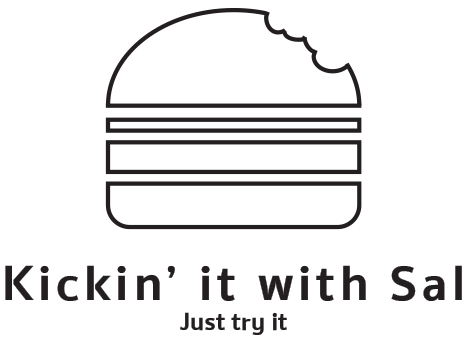You reach for that jar of honey or bottle of olive oil, trusting that what lies within is pure and authentic. But what if it isn’t? Food fraud, also known as economically motivated adulteration (EMA), involves intentionally altering or substituting valuable ingredients in food products to deceive consumers or increase profit margins. This deceptive practice poses health risks and undermines consumer trust in the integrity of the food supply chain.
In today’s globalized food industry, trust in the safety and authenticity of the products we consume is paramount. However, we are all victim to food that has been tampered with. Economically motivated adulteration (EMA) has far-reaching consequences for consumers, manufacturers, and regulatory agencies alike.
What is Food Fraud?
Economically motivated adulteration (EMA) or Food Fraud involves intentionally altering or substituting valuable ingredients in food products to deceive consumers or increase profit margins. This deceptive practice is a significant concern for regulatory agencies like the FDA, as it undermines consumer trust and poses health risks. EMA extends beyond food products and includes animal food and cosmetics, often leading to misbranding violations. Both consumers and manufacturers are victims of this deception, as fraudsters continually refine their techniques to evade detection.
Widespread Impact
As these criminals become more sophisticated, there is a pressing need for enhancing our detection methods and testing procedures to combat adulteration effectively. This doesn’t just scam consumers’ wallets, but it also puts their health and safety at risk. It is estimated that the global food industry loses around $40 billion annually to food fraud. It robs us of nutrients and can lead to severe health issues. Such as when China had a scandal involving melamine added into infant formulas, causing a public outcry. These are some of the worst offenders of food fraud: honey, maple syrup, olive oil, seafood, juice, spices, infant formula, and pine nuts.
Costly Consequences
Food fraud happens more frequently with expensive foods.
Honey: Fraud occurs in honey when rice syrup solids are added to reduce costs. Honey is much more expensive to produce than other sugar syrups, such as those from plants like corn, rice, sugarcane, and sugar beets.
Olive Oil: Olive oil is frequently subject to dilution and substitution, with cheaper seed oils often being added to increase profit margins.
Ground Spices: Ground spice powders are frequently adulterated with artificial colors, chalk powder, starch, and similar substances to increase the weight of the product or enhance its appearance. These adulteration practices deceive consumers and compromise the quality and authenticity of the spices, highlighting the importance of strict quality control measures and transparency in the spice industry.
Intentional vs Unintentional Adulteration
Intentional Adulteration: Food fraud involves intentional adulteration and deliberate tampering with food for economic gain through mislabeling or adulteration. This deceptive practice undermines consumer trust and poses significant health risks. Fraudsters may substitute valuable ingredients with cheaper alternatives or mislabel products to increase profit margins, highlighting the need for stringent regulatory oversight and detection methods.
Unintentional Adulteration: On the other hand, unintentional adulteration refers to accidental contamination or errors in food production processes that jeopardize food safety and quality. Cross-contamination or the introduction of pathogens during processing can lead to foodborne illnesses, posing serious risks to consumers’ health. While unintentional, these instances underscore the importance of robust food safety measures and quality control protocols to mitigate risks and ensure the integrity of the food supply chain.

Global Concerns
Food fraud is not confined to any particular region or country. In the UK, there was a scandal where ground beef products were found to be adulterated with horse meat, shocking consumers and raising concerns about food safety and transparency in the meat industry. In the US, there have been instances where products labeled as “100% juice” have been found to contain less than 30% actual juice when tested, misleading consumers about the true contents of the product. Such findings underscore the importance of rigorous testing and accurate labeling regulations to protect consumers and ensure they receive the products they expect.
Regulatory Response
Before the FDA existed, food fraud was prevalent, as highlighted in Upton Sinclair’s “The Jungle,” published in 1906. This led to the passing of important legislation, including the Pure Food and Drug Act and the Meat Inspection Act of 1906, which laid the groundwork for the establishment of the FDA.
FSMA:
The most recent and significant legislation in this regard is the FDA Food Safety Modernization Act (FSMA) signed into law by President Barack Obama in 2011. FSMA aims to protect public health by ensuring that the food Americans consume is safe, wholesome, and free from contamination.
United States Pharmacopeia (USP):
The United States Pharmacopeia (USP) plays a critical role in safeguarding public health by establishing standards for the identity, strength, quality, and purity of medicines, dietary supplements, and food ingredients. Through the establishment of these standards, the USP helps to prevent vulnerabilities in the supply chain and ensures that consumers have access to safe and effective products. Adherence to USP standards not only safeguards the integrity of pharmaceuticals and food ingredients but also serves to mitigate the risk of adulteration and fraud, thereby promoting public health and safety.
Consumer Vigilance
Consumers play a crucial role in combating food fraud by reporting any suspicious or fraudulent activities they encounter. By promptly notifying the company or regulatory authorities, consumers can help prevent further harm to public health and safety. Additionally, investing in new and improved detection systems and technologies is essential for staying ahead of fraudsters and reducing the likelihood of fraudulent activities going undetected. By working together with consumers, companies, and regulatory agencies, we can strengthen the integrity of the food supply chain and ensure that consumers have access to safe, authentic, and high-quality food products.
If you are interested in more Food Science content I suggest you check out my food science section!

